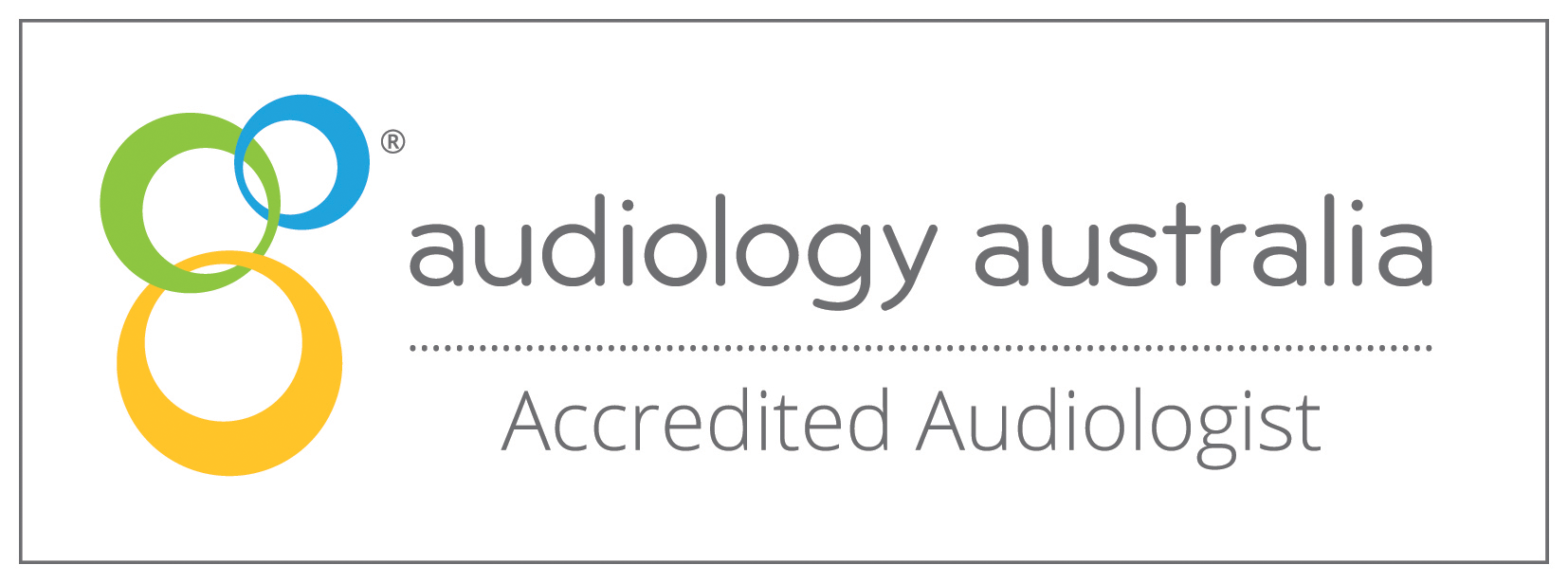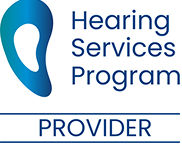When the World Gets Quieter: Recognizing Hearing Loss at Every Stage of Life
Hearing loss doesn't announce itself with fanfare. It creeps in quietly, often so gradually that we adapt without realizing what we're losing. Whether you're 8 or 80, the signs can be subtle at first—but recognizing them early can make all the difference in maintaining your quality of life and connections with others.
The Universal Red Flags
Some symptoms of hearing loss transcend age boundaries. These are the warning signs that anyone, regardless of their stage in life, should pay attention to:
The Volume Creep – You find yourself constantly reaching for the remote to turn up the TV, or friends and family start commenting that your music, phone calls, or shows are “too loud.” What feels normal to you might be uncomfortably loud for others.
The Conversation Shuffle – Social gatherings become exhausting. You’re working overtime to follow conversations, especially in noisy restaurants or crowded rooms. You might find yourself nodding along even when you’re not sure what was said, or frequently asking people to repeat themselves.
The Selective Hearing Myth – People joke that you have “selective hearing,” but you’re genuinely struggling to catch certain sounds. High-pitched voices (often women and children) become harder to understand, while deeper voices remain clearer.
The Isolation Drift – Perhaps most heartbreaking of all, you start avoiding social situations that once brought you joy. Phone calls become stressful, group dinners feel overwhelming, and you gradually withdraw from activities you used to love.
Hearing Loss in Children: The Hidden Struggle
Children’s hearing loss often flies under the radar because kids are remarkably adaptable. They develop coping strategies that can mask their difficulties for months or even years.
Academic Red Flags – Teachers might report that your child seems distracted, doesn’t follow instructions well, or appears to daydream frequently. What looks like attention issues could actually be hearing difficulties. Children might excel in visual subjects but struggle with verbal instruction-heavy classes.
Speech and Language Delays – Late talkers or children with unclear speech patterns might be dealing with hearing issues. If they can’t hear sounds clearly, they can’t reproduce them accurately. Watch for persistent mispronunciations beyond the typical age ranges.
The Volume Seekers – Kids who consistently sit close to the TV, ask for things to be repeated, or seem to “ignore” you when their back is turned might not be being defiant—they simply might not hear you clearly.
Social Withdrawal – Children might become quieter in group settings, prefer one-on-one play, or seem frustrated during activities that rely heavily on listening, like story time or music class.
Adult Warning Signs: When Life Gets Muffled
For adults, hearing loss often coincides with career demands, family responsibilities, and social obligations—making the impact particularly complex.
Professional Challenges – Missing important details in meetings, asking colleagues to repeat information via email instead of verbal communication, or feeling left out of office conversations. Conference calls become particularly challenging.
Relationship Strain – Partners might complain that you don’t listen, or family members become frustrated with having to repeat themselves. The emotional toll of miscommunication can strain even strong relationships.
Safety Concerns – Not hearing car horns, sirens, or warning signals while driving. Missing announcements in public spaces or failing to hear someone approaching from behind.
The Tinnitus Companion – Many adults with hearing loss also experience tinnitus—ringing, buzzing, or whooshing sounds in their ears. This can be particularly noticeable in quiet environments and may interfere with sleep.

For Seniors, its more than just “Getting Older”
While hearing loss is common among seniors, it’s crucial not to dismiss it as simply part of aging. Age-related hearing loss has specific patterns and impacts.
The High-Frequency Drop – Consonant sounds like ‘s’, ‘th’, and ‘f’ become harder to distinguish. This makes speech sound muffled even when it’s loud enough. Words might blend together, making conversation feel like listening to someone speak underwater.
Directional Confusion – Difficulty determining where sounds are coming from, which can be disorienting and potentially dangerous. You might hear someone talking but can’t locate them in a room.
Background Noise Battles – The ability to filter out background noise diminishes significantly. Restaurants, family gatherings, or anywhere with competing sounds become communication minefields.
Cognitive Load – The mental effort required to piece together incomplete auditory information can be exhausting and may contribute to social isolation, depression, or even cognitive decline.
Balance Issues – Since the inner ear affects both hearing and balance, some seniors might experience dizziness or unsteadiness alongside hearing difficulties.
The Emotional Landscape
Hearing loss isn’t just about missing sounds—it’s about missing connections. The psychological impact can be profound across all age groups. Children might develop behavioral issues or fall behind academically. Adults might experience job-related stress or relationship problems. Seniors might face depression or social isolation.
The frustration of asking “what?” repeatedly, the embarrassment of misunderstanding conversations, and the gradual disconnection from the world around you create ripple effects that extend far beyond the physical symptom.
When to Seek Help
If you recognize multiple symptoms in yourself or a loved one, it’s time to consult a hearing healthcare professional. Audiologists can conduct comprehensive evaluations that not only measure hearing ability but also assess how hearing loss might be impacting daily life.
Early intervention is key. Modern hearing aids are sophisticated devices that can be nearly invisible and dramatically improve quality of life. For children, early identification and treatment are crucial for language development and academic success.
The Bottom Line
Hearing loss symptoms vary by age, but the impact remains universally significant. Whether you’re noticing these signs in your toddler, teenager, yourself, or aging parent, don’t wait. Hearing connects us to our world and each other—it’s worth protecting and treating with the seriousness it deserves.
The first step is often the hardest: acknowledging that something has changed. But once you take that step, you’re on the path to reconnecting with all the sounds, voices, and moments that make life rich and meaningful.
If you’re concerned about hearing loss – your own or a loved one’s – we’re here to help. At Harken Audiology, we understand that addressing hearing loss is about so much more than just improving sound. It’s about restoring connection, confidence, and quality of life. Contact us today at 03 99691774 or 0414489521 to learn how we can help you hear better and live better.
When the World Gets Quieter: Recognizing Hearing Loss at Every Stage of Life
Hearing loss doesn't announce itself with fanfare. It creeps in quietly, often so gradually that we adapt without realizing what we're losing. Whether you're 8 or 80, the signs can be subtle at first—but recognizing them early can make all the difference in maintaining your quality of life and connections with others.
The Universal Red Flags
Some symptoms of hearing loss transcend age boundaries. These are the warning signs that anyone, regardless of their stage in life, should pay attention to:
The Volume Creep – You find yourself constantly reaching for the remote to turn up the TV, or friends and family start commenting that your music, phone calls, or shows are “too loud.” What feels normal to you might be uncomfortably loud for others.
The Conversation Shuffle – Social gatherings become exhausting. You’re working overtime to follow conversations, especially in noisy restaurants or crowded rooms. You might find yourself nodding along even when you’re not sure what was said, or frequently asking people to repeat themselves.
The Selective Hearing Myth – People joke that you have “selective hearing,” but you’re genuinely struggling to catch certain sounds. High-pitched voices (often women and children) become harder to understand, while deeper voices remain clearer.
The Isolation Drift – Perhaps most heartbreaking of all, you start avoiding social situations that once brought you joy. Phone calls become stressful, group dinners feel overwhelming, and you gradually withdraw from activities you used to love.
Hearing Loss in Children: The Hidden Struggle
Children’s hearing loss often flies under the radar because kids are remarkably adaptable. They develop coping strategies that can mask their difficulties for months or even years.
Academic Red Flags – Teachers might report that your child seems distracted, doesn’t follow instructions well, or appears to daydream frequently. What looks like attention issues could actually be hearing difficulties. Children might excel in visual subjects but struggle with verbal instruction-heavy classes.
Speech and Language Delays – Late talkers or children with unclear speech patterns might be dealing with hearing issues. If they can’t hear sounds clearly, they can’t reproduce them accurately. Watch for persistent mispronunciations beyond the typical age ranges.
The Volume Seekers – Kids who consistently sit close to the TV, ask for things to be repeated, or seem to “ignore” you when their back is turned might not be being defiant—they simply might not hear you clearly.
Social Withdrawal – Children might become quieter in group settings, prefer one-on-one play, or seem frustrated during activities that rely heavily on listening, like story time or music class.
Adult Warning Signs: When Life Gets Muffled
For adults, hearing loss often coincides with career demands, family responsibilities, and social obligations—making the impact particularly complex.
Professional Challenges – Missing important details in meetings, asking colleagues to repeat information via email instead of verbal communication, or feeling left out of office conversations. Conference calls become particularly challenging.
Relationship Strain – Partners might complain that you don’t listen, or family members become frustrated with having to repeat themselves. The emotional toll of miscommunication can strain even strong relationships.
Safety Concerns – Not hearing car horns, sirens, or warning signals while driving. Missing announcements in public spaces or failing to hear someone approaching from behind.
The Tinnitus Companion – Many adults with hearing loss also experience tinnitus—ringing, buzzing, or whooshing sounds in their ears. This can be particularly noticeable in quiet environments and may interfere with sleep.

For Seniors, its more than just “Getting Older”
While hearing loss is common among seniors, it’s crucial not to dismiss it as simply part of aging. Age-related hearing loss has specific patterns and impacts.
The High-Frequency Drop – Consonant sounds like ‘s’, ‘th’, and ‘f’ become harder to distinguish. This makes speech sound muffled even when it’s loud enough. Words might blend together, making conversation feel like listening to someone speak underwater.
Directional Confusion – Difficulty determining where sounds are coming from, which can be disorienting and potentially dangerous. You might hear someone talking but can’t locate them in a room.
Background Noise Battles – The ability to filter out background noise diminishes significantly. Restaurants, family gatherings, or anywhere with competing sounds become communication minefields.
Cognitive Load – The mental effort required to piece together incomplete auditory information can be exhausting and may contribute to social isolation, depression, or even cognitive decline.
Balance Issues – Since the inner ear affects both hearing and balance, some seniors might experience dizziness or unsteadiness alongside hearing difficulties.
The Emotional Landscape
Hearing loss isn’t just about missing sounds—it’s about missing connections. The psychological impact can be profound across all age groups. Children might develop behavioral issues or fall behind academically. Adults might experience job-related stress or relationship problems. Seniors might face depression or social isolation.
The frustration of asking “what?” repeatedly, the embarrassment of misunderstanding conversations, and the gradual disconnection from the world around you create ripple effects that extend far beyond the physical symptom.
When to Seek Help
If you recognize multiple symptoms in yourself or a loved one, it’s time to consult a hearing healthcare professional. Audiologists can conduct comprehensive evaluations that not only measure hearing ability but also assess how hearing loss might be impacting daily life.
Early intervention is key. Modern hearing aids are sophisticated devices that can be nearly invisible and dramatically improve quality of life. For children, early identification and treatment are crucial for language development and academic success.
The Bottom Line
Hearing loss symptoms vary by age, but the impact remains universally significant. Whether you’re noticing these signs in your toddler, teenager, yourself, or aging parent, don’t wait. Hearing connects us to our world and each other—it’s worth protecting and treating with the seriousness it deserves.
The first step is often the hardest: acknowledging that something has changed. But once you take that step, you’re on the path to reconnecting with all the sounds, voices, and moments that make life rich and meaningful.
If you’re concerned about hearing loss – your own or a loved one’s – we’re here to help. At Harken Audiology, we understand that addressing hearing loss is about so much more than just improving sound. It’s about restoring connection, confidence, and quality of life. Contact us today at 03 99691774 or 0414489521 to learn how we can help you hear better and live better.
When the World Gets Quieter: Recognizing Hearing Loss at Every Stage of Life
When the World Gets Quieter: Recognizing Hearing Loss at Every Stage of Life
Hearing loss doesn't announce itself with fanfare. It creeps in quietly, often so gradually that we adapt without realizing what we're losing. Whether you're 8 or 80, the signs can be subtle at first—but recognizing them early can make all the difference in maintaining your quality of life and connections with others.
The Universal Red Flags
Some symptoms of hearing loss transcend age boundaries. These are the warning signs that anyone, regardless of their stage in life, should pay attention to:
The Volume Creep – You find yourself constantly reaching for the remote to turn up the TV, or friends and family start commenting that your music, phone calls, or shows are “too loud.” What feels normal to you might be uncomfortably loud for others.
The Conversation Shuffle – Social gatherings become exhausting. You’re working overtime to follow conversations, especially in noisy restaurants or crowded rooms. You might find yourself nodding along even when you’re not sure what was said, or frequently asking people to repeat themselves.
The Selective Hearing Myth – People joke that you have “selective hearing,” but you’re genuinely struggling to catch certain sounds. High-pitched voices (often women and children) become harder to understand, while deeper voices remain clearer.
The Isolation Drift – Perhaps most heartbreaking of all, you start avoiding social situations that once brought you joy. Phone calls become stressful, group dinners feel overwhelming, and you gradually withdraw from activities you used to love.
Hearing Loss in Children: The Hidden Struggle
Children’s hearing loss often flies under the radar because kids are remarkably adaptable. They develop coping strategies that can mask their difficulties for months or even years.
Academic Red Flags – Teachers might report that your child seems distracted, doesn’t follow instructions well, or appears to daydream frequently. What looks like attention issues could actually be hearing difficulties. Children might excel in visual subjects but struggle with verbal instruction-heavy classes.
Speech and Language Delays – Late talkers or children with unclear speech patterns might be dealing with hearing issues. If they can’t hear sounds clearly, they can’t reproduce them accurately. Watch for persistent mispronunciations beyond the typical age ranges.
The Volume Seekers – Kids who consistently sit close to the TV, ask for things to be repeated, or seem to “ignore” you when their back is turned might not be being defiant—they simply might not hear you clearly.
Social Withdrawal – Children might become quieter in group settings, prefer one-on-one play, or seem frustrated during activities that rely heavily on listening, like story time or music class.
Adult Warning Signs: When Life Gets Muffled
For adults, hearing loss often coincides with career demands, family responsibilities, and social obligations—making the impact particularly complex.
Professional Challenges – Missing important details in meetings, asking colleagues to repeat information via email instead of verbal communication, or feeling left out of office conversations. Conference calls become particularly challenging.
Relationship Strain – Partners might complain that you don’t listen, or family members become frustrated with having to repeat themselves. The emotional toll of miscommunication can strain even strong relationships.
Safety Concerns – Not hearing car horns, sirens, or warning signals while driving. Missing announcements in public spaces or failing to hear someone approaching from behind.
The Tinnitus Companion – Many adults with hearing loss also experience tinnitus—ringing, buzzing, or whooshing sounds in their ears. This can be particularly noticeable in quiet environments and may interfere with sleep.

For Seniors, its more than just “Getting Older”
While hearing loss is common among seniors, it’s crucial not to dismiss it as simply part of aging. Age-related hearing loss has specific patterns and impacts.
The High-Frequency Drop – Consonant sounds like ‘s’, ‘th’, and ‘f’ become harder to distinguish. This makes speech sound muffled even when it’s loud enough. Words might blend together, making conversation feel like listening to someone speak underwater.
Directional Confusion – Difficulty determining where sounds are coming from, which can be disorienting and potentially dangerous. You might hear someone talking but can’t locate them in a room.
Background Noise Battles – The ability to filter out background noise diminishes significantly. Restaurants, family gatherings, or anywhere with competing sounds become communication minefields.
Cognitive Load – The mental effort required to piece together incomplete auditory information can be exhausting and may contribute to social isolation, depression, or even cognitive decline.
Balance Issues – Since the inner ear affects both hearing and balance, some seniors might experience dizziness or unsteadiness alongside hearing difficulties.
The Emotional Landscape
Hearing loss isn’t just about missing sounds—it’s about missing connections. The psychological impact can be profound across all age groups. Children might develop behavioral issues or fall behind academically. Adults might experience job-related stress or relationship problems. Seniors might face depression or social isolation.
The frustration of asking “what?” repeatedly, the embarrassment of misunderstanding conversations, and the gradual disconnection from the world around you create ripple effects that extend far beyond the physical symptom.
When to Seek Help
If you recognize multiple symptoms in yourself or a loved one, it’s time to consult a hearing healthcare professional. Audiologists can conduct comprehensive evaluations that not only measure hearing ability but also assess how hearing loss might be impacting daily life.
Early intervention is key. Modern hearing aids are sophisticated devices that can be nearly invisible and dramatically improve quality of life. For children, early identification and treatment are crucial for language development and academic success.
The Bottom Line
Hearing loss symptoms vary by age, but the impact remains universally significant. Whether you’re noticing these signs in your toddler, teenager, yourself, or aging parent, don’t wait. Hearing connects us to our world and each other—it’s worth protecting and treating with the seriousness it deserves.
The first step is often the hardest: acknowledging that something has changed. But once you take that step, you’re on the path to reconnecting with all the sounds, voices, and moments that make life rich and meaningful.
If you’re concerned about hearing loss – your own or a loved one’s – we’re here to help. At Harken Audiology, we understand that addressing hearing loss is about so much more than just improving sound. It’s about restoring connection, confidence, and quality of life. Contact us today at 03 99691774 or 0414489521 to learn how we can help you hear better and live better.




